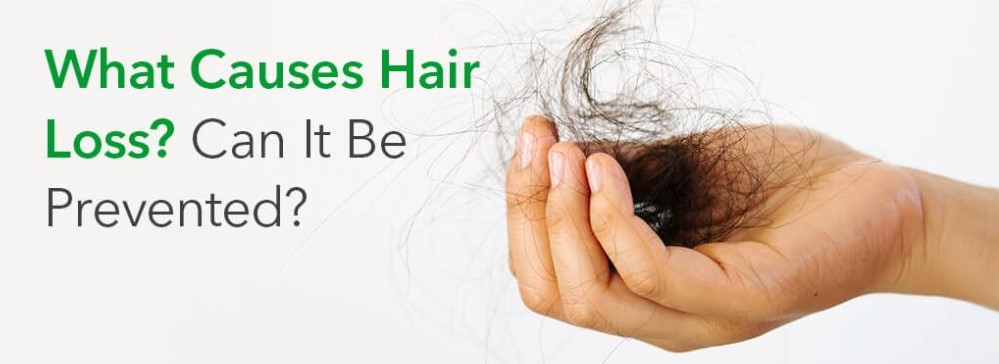Decoding Your Hair Loss: Common Causes and What You Can Do About It
Decoding Your Hair Loss: Common Causes and What You Can Do About It
Ashley Crowne
2/7/20242 min read


Decoding Your Hair Loss: Common Causes and What You Can Do About It
Hair loss is a widespread issue that affects countless men and women around the globe, often impacting confidence and overall well-being. Whether you're noticing a thinner hairline, excessive shedding, or balding patches, understanding the root cause is the first step toward finding the right solution.
In this post, we’ll explore the leading causes of hair loss, how to recognize the signs, and what you can do to prevent or treat hair thinning—from lifestyle improvements to professional interventions like hair transplants and PRP therapy.
Recognizing Hair Loss: When to Be Concerned
Losing around 50 to 100 hairs a day is a natural part of the hair growth cycle. However, if you see increased shedding, noticeable thinning, or bald spots, it may signal an underlying issue.
Hair loss, or alopecia, can be temporary or permanent, and discovering the cause is essential for effective treatment.
1. Genetic Hair Loss (Androgenetic Alopecia)
This type of hair loss, often referred to as male-pattern or female-pattern baldness, is hereditary and the most common cause. Men typically develop a receding hairline or thinning crown, while women experience overall thinning or a wider part.
Solutions:
Medications like minoxidil or finasteride (for men)
Hair transplant procedures for lasting, natural results
Early diagnosis can help slow progression
2. Hormonal Imbalances
Hormone shifts from pregnancy, menopause, or thyroid problems can interfere with normal hair growth. Women may notice sudden shedding postpartum or during menopause.
What to Do:
Test hormone levels through a medical provider
Treat underlying conditions (e.g., thyroid issues, PCOS)
Maintain a healthy diet with nutrients like vitamin D, iron, and biotin
3. Physical or Emotional Stress
Stressful events—such as illness, surgery, or emotional trauma—can lead to telogen effluvium, a condition where hair prematurely enters the shedding phase.
Care Tips:
Reduce stress through meditation, yoga, or counseling
Be gentle with your hair; avoid tight hairstyles
Hair usually returns within several months after recovery
4. Poor Nutrition and Deficiencies
A diet lacking in key nutrients can weaken hair follicles, leading to increased shedding. Deficiencies in iron, protein, zinc, and B vitamins are particularly linked to hair loss.
Recommended Actions:
Eat a nutrient-dense diet with whole foods
Consider supplements under medical guidance
Stay hydrated and avoid extreme dieting
5. Health Conditions and Medications
Certain health problems and prescription drugs can cause hair thinning. Autoimmune conditions like alopecia areata, as well as medications for cancer, depression, and high blood pressure, are common triggers.
Advice:
Get evaluated by a healthcare provider or dermatologist
Review medications and ask about alternatives
Explore advanced options like PRP (Platelet-Rich Plasma) therapy
6. Hair Styling and Chemical Damage
Overstyling with heat tools, hair dyes, or tight ponytails can damage follicles and cause traction alopecia or breakage.
Prevention Tips:
Limit heat styling and chemical treatments
Use mild, sulfate-free hair products
Let hair air-dry when possible and avoid pulling it tightly
When It’s Time to See a Specialist
If hair loss continues or worsens, it may be time to consult with a professional. Hair restoration clinics offer comprehensive evaluations and can recommend treatments such as:
Hair transplants (including FUE and DHI techniques)
PRP therapy to stimulate growth
Medical prescriptions or laser therapy
Scalp treatments to improve follicle health
Final Thoughts
Hair loss can be distressing, but it’s also manageable with the right knowledge and action. Identifying the cause early allows you to make informed decisions to preserve and restore healthy hair.
Whether you're just beginning to notice changes or are ready to explore advanced solutions, there are effective treatments available to help you regain confidence and achieve fuller hair.
Considering your options? Reach out to a certified hair restoration expert at Cosmedic Expressfor a personalized consultation and take the first step toward revitalizing your hair health.
Excellence
Leading cosmetic procedures with global recognition and value.
We Are ISO 27001 Certified
Info@CosmedicExpress.com
© 2017 - 2025. All rights reserved.


